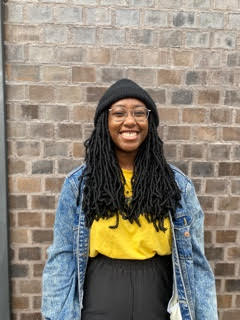
Kathryn P.
Trainee Patent AttorneyWhat led you to follow this career path?
I did a physics degree, but I didn’t want to go down one of the traditionally maths based career paths such as being a banker, or an academic (which is usually modelling the world through lots of coding). When I heard about patent law, which is basically law specifically for scientists, I felt like I’d found the perfect career for me.
What qualification(s) or training did you complete?
To become a qualified patent attorney, you have to do a science or engineering degree, and then apply for the job. Once you have a job, it is necessary to do UK and European qualifications, which are spread out over four years. I am two years into my on-the-job training, so I have a few more exams in the next couple of years before I’m qualified.
How are your qualification(s) or training useful in your everyday job?
The simplest way to summarise my job is: figuring out how stuff works, and then explaining it. Physics teaches you the fundamentals of mechanics as well as general logical problem solving skills. Being a patent attorney involves using logic to figure out the principles underlying technology and explaining why those principles differ from other technology.
What does an average working day look like for you?
As with any job, I start by checking my emails! Then I’ll probably read about one of my client’s medical devices, and then read a communication from an examining body that explains why they think the device is too similar to another competing device to be patentable. I’ll have a read about the competing device, and then come up with some reasoning why my client’s device is fundamentally different, and hopefully better, than the competitor’s. Then, I’ll have a meeting with a supervisor to discuss the argument, and we’ll send it off to the client to get their thoughts.
What aspect of your role do you most enjoy?
I most enjoy when I get a notice from the examining body saying that they can’t think of a counter argument, so my client can be issued with a patent. The sense of accomplishment feels great.
What aspect of your job do you find most challenging?
The most challenging part is being given a case about a type of technology that I know nothing about, and then having to research and learn about the tech sufficiently enough that I can defend my client’s device. It’s a bit daunting accepting that you don’t know anything about a field, but rewarding when it finally clicks into place.
What would be your top piece of advice for anyone wanting to become a patent attorney?
Have confidence in your own ideas.





Comments